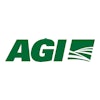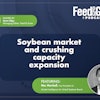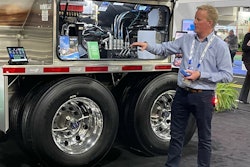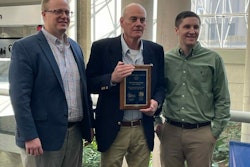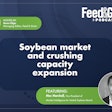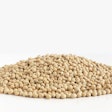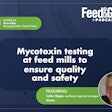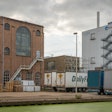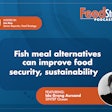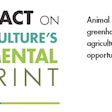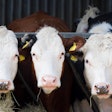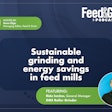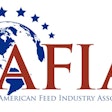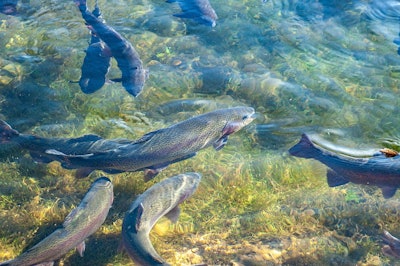
Benson Hill, Inc. announces a collaboration with Riverence Holdings, the largest land-based producer of steelhead and rainbow trout in the Americas, to enhance thesustainability of aquaculture supply chainsusing Benson Hill’s innovative soy ingredients.
Aquaculture provides over half of the seafood for human consumption globally and is the fastest-growing food production sector. According to the Food and Agriculture Organization, aquaculture is expected to overtake capture production in 2027 and account for 52% of all fish production for all uses by 2030.
The market is projected to exceed $245 billion by 2027, up from approximately $180 billion today. Feed is the primary cost of the system and a major contributor to its carbon and water footprint.
Sourcing plant-based, traceable ingredients free of deforestation is a challenge for the industry. Benson Hill’s portfolio of innovative soy-derived ingredients offers an efficient and cost-effective solution to help improve sustainability and scale this growing market.
“Benson Hill has developed soy ingredients that are uniquely suited for aquaculture and check all the boxes from a nutrition, sustainability and cost perspective,” says Jesse Trushenski, Chief Science Officer of Riverence.
“It’s exciting to have a product designed for our market that supports improved performance of our fish, is traceable, and has a very clean carbon and water profile.We decided to incorporate Benson Hill’s ingredients again this year and believe it’s the beginning of a long and valuable partnership.”
Benson Hill uses its proprietary CropOS®technology platform and advanced breeding techniques to leverage the natural genetic diversity within plants and develop improved ingredients beginning with a better seed. The company’s proprietary soybean varieties expressing Ultra-High Protein (UHP) and low anti-nutrient levels reduce the need for processing steps to concentrate protein levels.
The result is a minimally processed ingredient designed as an alternative to commodity Soy Protein Concentrate (SPC) that requires up to 70% less water and up to 50% less CO2e to produce than U.S.-sourced SPC, and up to 83% less water and up to 89% less CO2e when compared to Brazilian-sourced SPC, accounting for the impacts of deforestation.
The ingredients derived from UHP varieties demonstrate equivalent performance to an SPC-based diet in salmon and trout, as measured by Feed Conversion Ratio.
Benson Hill works with farmers to grow its UHP soybean varieties with an emphasis on using regenerative agriculture practices under a policy that prohibits deforestation. Through this collaboration, the companies are working to develop a supply of traceable and deforestation-free certified Benson Hill ingredients to serve the Riverence supply chain.
“Sustainable aquaculture systems will be an increasingly critical source of animal protein as the pressures of climate change intensify,” says Matt Crisp, CEO of Benson Hill. “Ingredient innovation provides a meaningful impact on feed quality, sustainability and traceability. We’re thrilled to work with the Riverence team to advance aquaculture together.”
Benson Hill’s proprietary ingredients will be incorporated into the aquaculture diets manufactured by Riverence’s preferred supplier Rangen, a brand of Wilbur-Ellis Nutrition.
RELATED READING
Benson Hill to Expand Soybean Processing Capacity
Benson Hill Advances Yellow Pea Innovation

